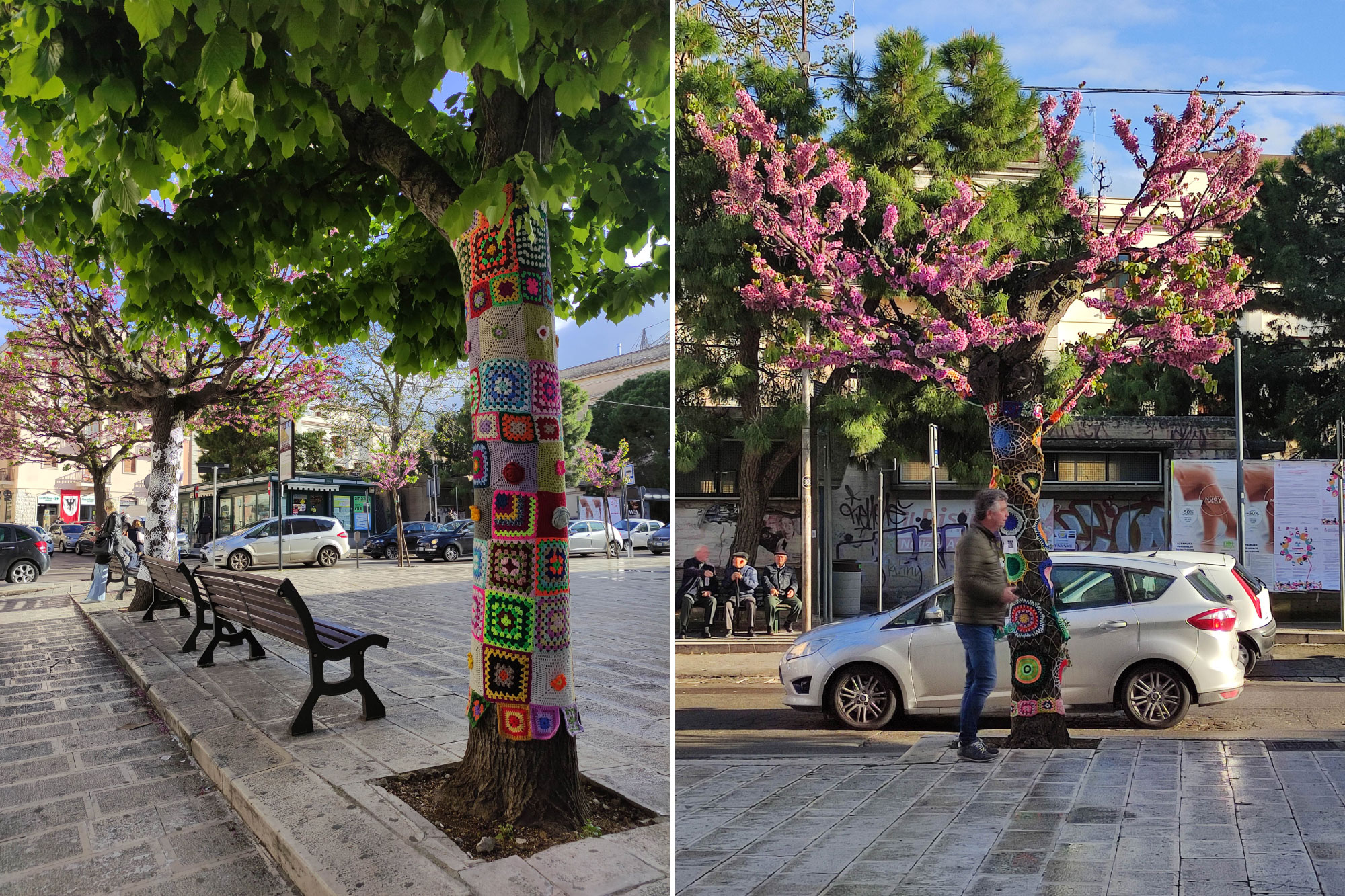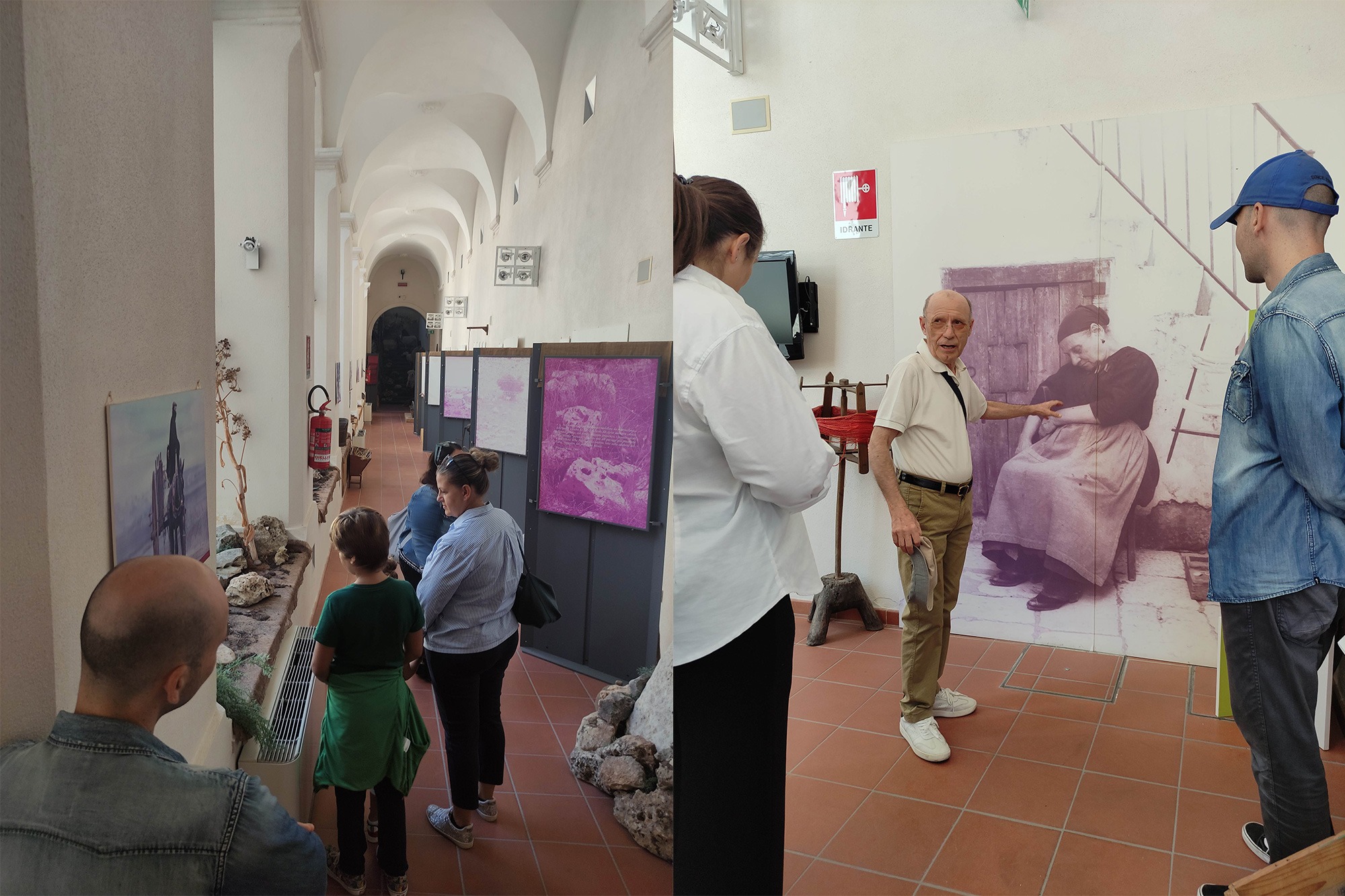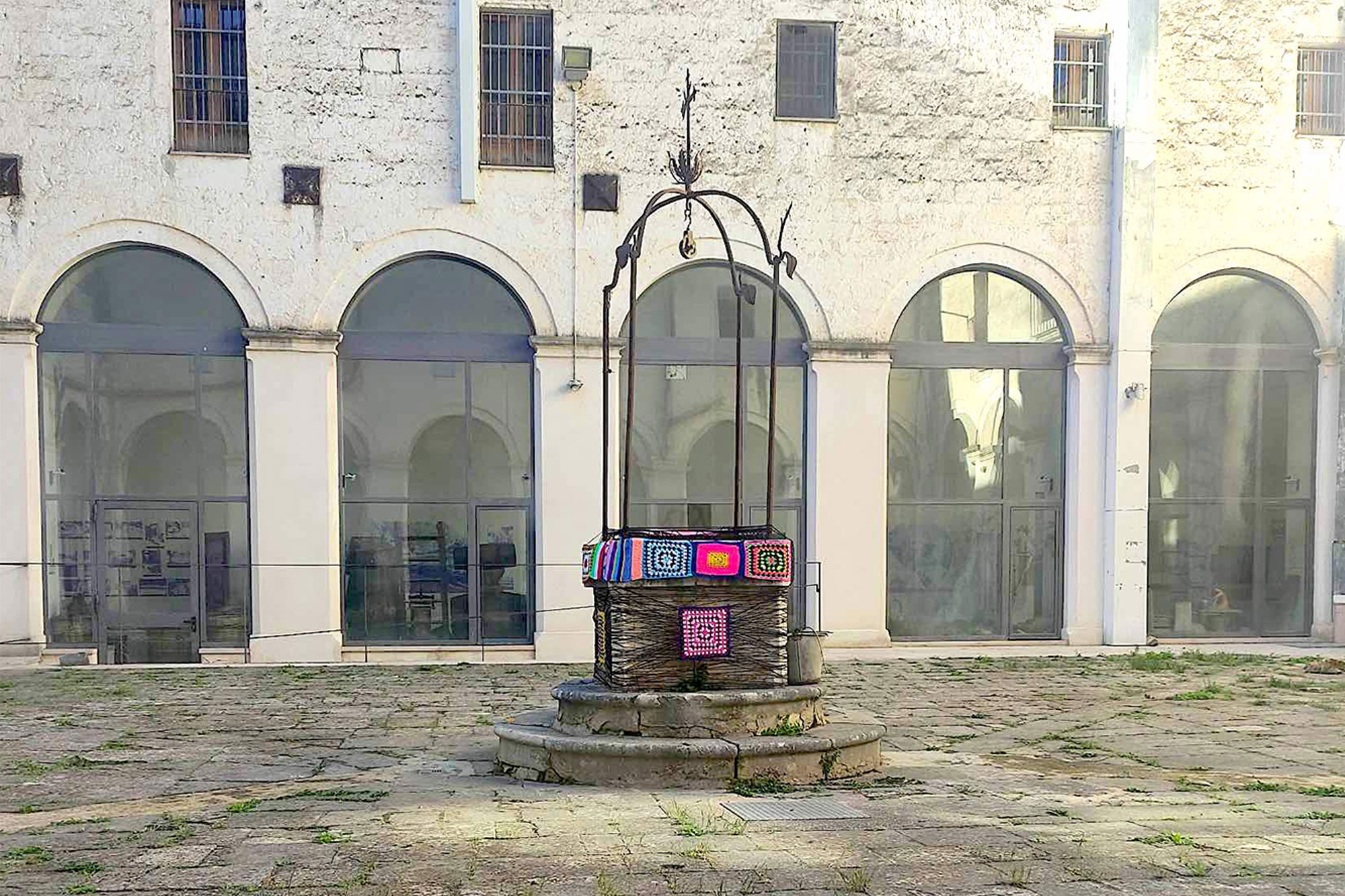


- esperimentiarchitettonici.it
- info@esperimentiarchitettonici.it
- Not available
- Yes
- Saverio Massaro
esperimenti architettonici
- Altamura, Italy
The experience will take place within the Museo Etnografico dell’Alta Murgia (Ethnographic Museum of Alta Murgia), offering full access to the permanent collection for research purposes, as well as to the temporary collection—objects created by local youth and artisans during the “Staffettartigiana Reloaded” Living Lab.
The experience will focus on collaboratively exploring the potential of reuse, recycling, and upcycling—transforming waste into valuable resources, reducing environmental impact, and generating shared value.
themes involved in our work
- Circularity (e.g. reusing materials)
Expected and aspired co-creation
Participants will take part in the Abitare Circolare School program, dedicated to circular design, sustainability, and creative craftsmanship. The journey will include hands-on exploration of biomaterials, paper scraps, and textile remnants.
The item produced will be designed to become part of the “Table of Circularity,” a public, convivial installation co-created by instructors and participants of the Abitare Circolare School.
This is an act of civic engagement that frames circularity and sustainability not merely as tools for saving resources or increasing efficiency, but as opportunities to innovate and create value through creativity and art.
The experience will begin with an introduction to the fundamentals of circular economy and Life Cycle Assessment (LCA).
Next, we will focus on mapping available or potential waste materials.
In the third phase, a design thinking process will guide participants from concept to prototype.
The final phase will involve refining the object and creating a “material passport” including material characteristics, sustainability data, and elements of storytelling.
Participants will receive educational materials from the Abitare Circolare School program, as well as a copy of the book “Abitare Circolare” (IT/EN), featuring theoretical essays and case studies.
We look forward to exchanging knowledge on sustainable practices and strategies for extending the life of materials and products.
Moreover, we are eager to learn techniques, skills, and craft traditions from other cultures that can enrich our training and experimentation program.
equipment and machinery available
A shared library of objects composed of easels and mobile tables, wooden panels and profiles, drills and screwdrivers, screws and bolts, tape measures, tablets, monitors, headphones, ring lights, cardboard whiteboards, stools, post-its and markers, scissors and cutters.
Preferred periods in the year 2025
June, July, September
working hours and week days
The practitioner can work at the Museum on daily base. 5 days of support will be provided daily in total both in person and through digital media.

